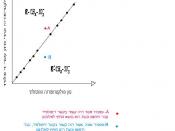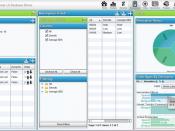Chapter 1
I/O psychology
-application of psychological principles to business and industry
-professional practical approach
First force
-Bryan
-looked at workplaces of people (studied telegraphers work)
-wanted not studying problems of industry but examining real skills as base to develop scientific psychology
2nd force
-Gilbreth
-Time and Motion studies- studying elements of human motion ("therbligs")
-to improve efficiency (desire of industrial engineers) and skills in the job
Walter Dill Scott
-power of suggestion - how can it influence peoples' behaviour
-wrote books about the need of psychology in advertising
-increasing efficiency by imitation, competiton, loyality + concentration
Frederick W. Taylor
-idea of work-rest to increase efficiency
-stressed on using of scientific methods to measure
Hugo Munsterberg
-selecting workers
-designing work situations
-using psycho in sales
-studied all tasks (aspects) of the job
-studying: what makes a safe trolley car operator
o developed a laboratory simulation of a trolley car
-a good operator should know all aspects of the job
Army Alpha (WW I)
-first intelligence test
-to recruit the right soldiers with the right KSA's
- discovered that 30% of recruits were illiterate
-developed Army Beta Test for those who cannot read English
-use of tests was minimal because the war was soon over
Hawthorne effect
-find relationship between lightening and efficiency
o productivity did not seem to have a relationship to the level of illumination
-change of behaviour because workers wanted to impress the researchers
-novel treatment of situation affects behaviour (improved performance)
-Return to previous level of behaviour when novelty wears off
o can last from a few days to two years
-major findings:
o informal work groups control productivity
oimportance of employees attitudes
oprod. affected by way of supervising
onew vistas to field were opend
efficiency is not the only criterion
Chapter 2
Why do...



Formatting sukZ!
The formatting for this paper sucks! Either remove it from the database or rectify it!
5 out of 6 people found this comment useful.